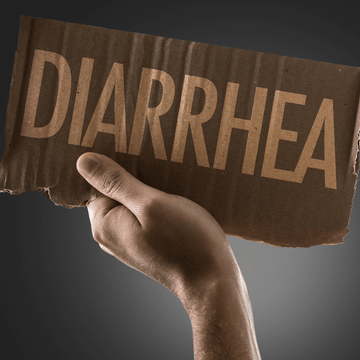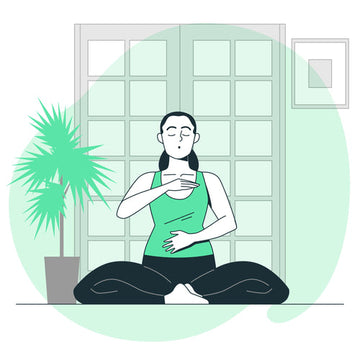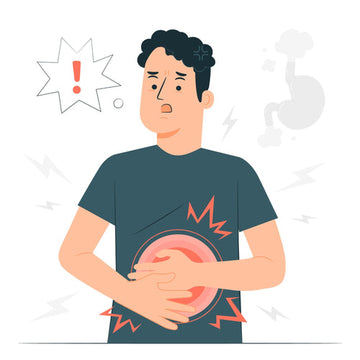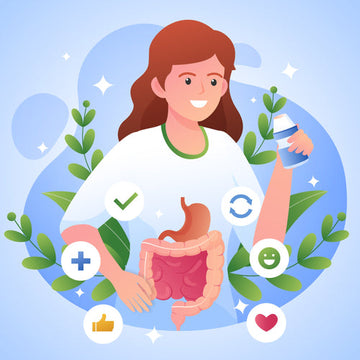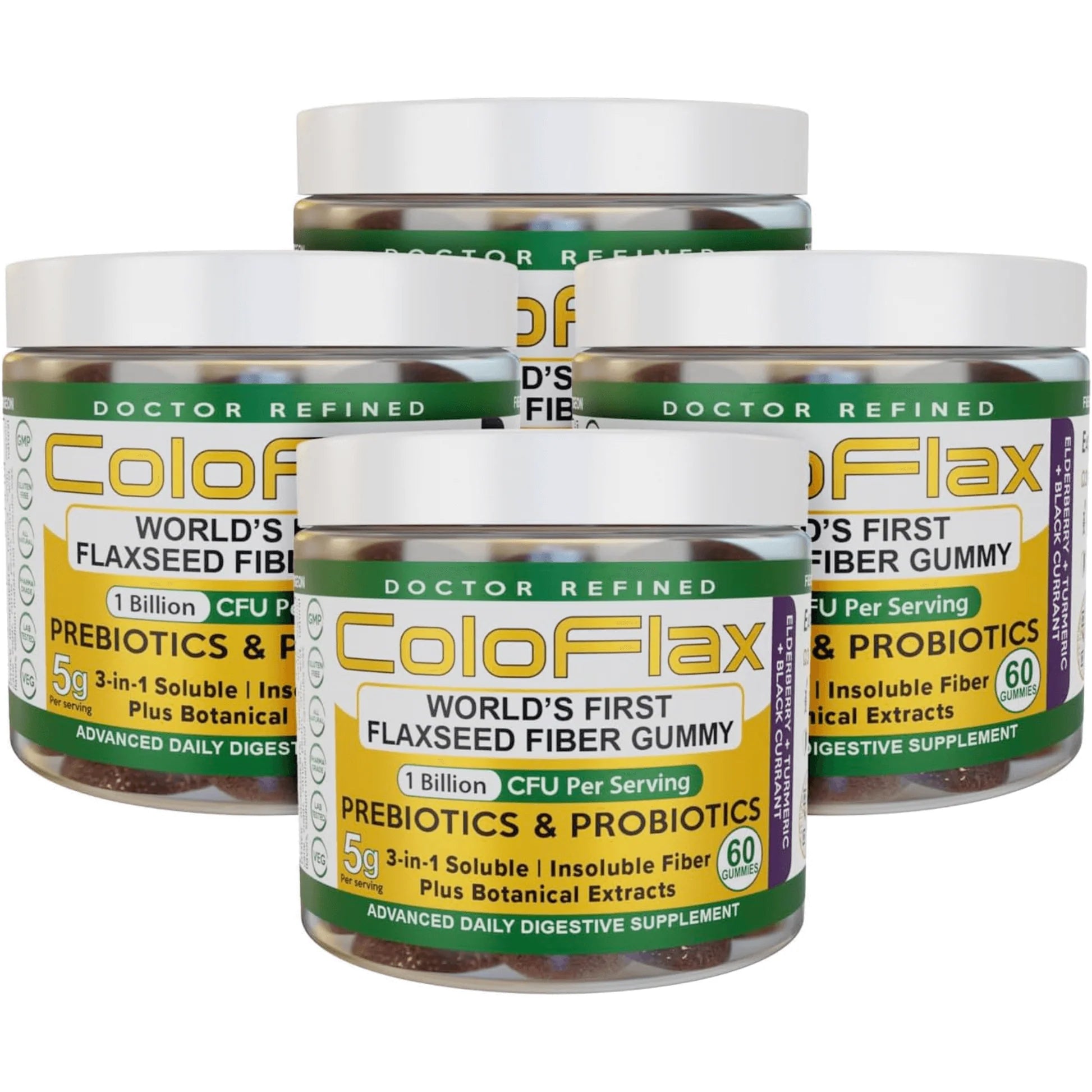Diarrhea is one of the most common conditions and it’s something that most of us experience at least a few times a year. It’s often brief and dietary-related, but if it’s persistent, it could be a sign of something more serious.
In any case, it’s always uncomfortable, unpleasant, and something that you want to cure as quickly as possible.
With that said, let’s look at some of the most common causes of diarrhea, as well as the solutions that will cure them.
A Reaction to Medication

Digestive issues are a common medication side effect, and you’ll see diarrhea and constipation listed on countless prescription and OTC medication leaflets.
Most of the time, these reactions are minor and will clear up in time. In rare cases, diarrhea could be a sign of a serious reaction that requires medical attention. Check the leaflet for more information and speak with your physician if you are concerned about side effects.
The medications that most frequently cause diarrhea include:
- Antibiotics
- Antidepressants
- Antacids
- Chemotherapy medications
- Metformin
- Proton pump inhibitors
If these medications have been prescribed and the diarrheal doesn’t go away after a few days, let your doctor know. They may recommend anti-diarrhea medication to reduce the dose.
A Food Intolerance

Food intolerances can cause diarrhea and other digestive symptoms. These can vary from minor discomfort to lactose intolerance or coeliac disease. A doctor or nutritionist can help you to highlight your specific intolerance, but you can also learn the answer yourself through trial and error.
Simply remove foods from your diet that might be causing the issue. If you have diarrhea in the morning, think about what you ate the night before and start eliminating those foods from your diet.
Irritable Bowel Syndrome (IBS)

Irritable bowel syndrome (IBS) and inflammatory bowel disease (IBD) can cause diarrhea and other digestive issues. If you have either of these conditions, you may also experience symptoms such as constipation, abdominal pain, gas, discomfort, and an urgent need to defecate.
A Viral Infection

Diarrhea can be caused by a number of viral infections, including rotavirus and norovirus. Also known as “the vomiting bug”, norovirus is one of the most common viral infections. As the name suggests, it often leads to nausea and vomiting, but it can also cause diarrhea.
Norovirus is spread by contact with an infected person or their bodily fluids, primarily vomit and feces. It spreads easily through families and closely connected communities and also makes regular appearances on cruise ships.
Other viruses work in a similar manner.
The only way to combat them is to wash your hands before eating and refrain from contact with anyone who might be infected.
Drinking Alcohol

A night of drinking won’t just leave you with a headache and a bad taste in your mouth. It can also cause gas, bloating, and diarrhea. If you’re drinking every night or every couple of days, those symptoms probably won’t go away.
Your body is trying to get back to normal, but you’re not giving it a chance.
If that’s the case, simply cut back on your alcohol intake or stop drinking entirely. The symptoms should clear up in a few days.
Bad Diet

It should go without saying that your diet plays a big role in your digestive health. We tend to think of fiber as something that hastens digestion and causes diarrhea, but while abstaining from fiber is a good idea when you already have diarrhea, it’s rarely the cause to begin with.
Foods high in saturated fat can lead to loose and watery stools, though. If you’re subsisting on a diet of fast food—fries, burgers, fried meat—you may experience diarrhea.
Spicy Food

Capsaicin irritates the stomach lining and could cause diarrhea, especially if large amounts are consumed.
The side effects of hot chili consumption can be unpleasant, to say the least, but they are short-lived and shouldn’t last for more than a day. Of course, if you keep eating those superhot foods, the symptoms will remain.
A Bacterial Infection

There are a number of bacterial infections that can cause diarrhea. In the United States, the most common are Salmonella, Shigella, Campylobacter, and Escherichia coli (E. coli).
As with viral infections, these bacteria are transmitted via contact with infected persons and foods:
- Salmonella: Salmonella is often caused by eating undercooked meat, poultry, or eggs, but can also be transmitted through unpasteurized milk. The most common cause of salmonella infection is undercooked chicken and cross-contamination from raw chicken.
- Shigella: Shigella is spread through contact with infected stools. It can also be contracted by swimming in infected pools, lakes, rivers, and streams, or by using a hot tub with infected water.
- Campylobacter: As with salmonella, campylobacter is spread through uncooked and undercooked poultry. It can cause bloody diarrhea, fever, headaches, nausea, and a number of other symptoms.
- Escherichia coli (E. coli): E. coil is spread via contact with infected stools, but these bacteria can also spread to meat and milk products, as well as anything touched by an infected individual.
To avoid bacterial infections, be sure to wash your hands before eating and after touching raw meat. Thoroughly cook all chicken and other meat products and stay clear of unpasteurized milk.
You should also refrain from washing raw chicken. It’s completely unnecessary and can actually make things worse, as you’ll be splashing that bacteria around your sink and kitchen.
A High Caffeine Intake

In moderate doses, caffeine is perfectly healthy, but when consumed to excess it can cause a range of digestive and cardiovascular symptoms.
You’ll find caffeine in tea, coffee, chocolate, energy drinks, and soft drinks. If you’re consuming multiple of these things in a short space of time, you could be ingesting huge amounts of this stimulant.
Some people are more sensitive to caffeine than others, but when consumed to excess, everyone will experience negative effects.
Supplements and Herbal Teas

Do you drink any herbal teas on a regular basis? They could be causing your diarrhea and can also have a diuretic effect. Herbal teas can be very good for you as they are a rich source of antioxidants, but excessive consumption or sensitivities can wreak havoc on your digestive system.
Excessive use of pre-workout supplements, creatine, and a host of other sports supplements can also cause diarrhea. The same is true for supplements designed for weight loss, as well as “green superfood” drinks.
You might be taking these things without much consideration for the outcome. They could be such a regular part of your daily life that you don’t even consider them when you experience diarrhea symptoms. So, check the label, look at the side effects, and if diarrhea is listed, try abstaining to see if it goes away.
Excessive Consumption of Sugar-Free Products

Some of the sugar substitutes used in chewing gum and candy can have a laxative effect when used in excess. Sorbitol is one of the main causes of these effects.
Sorbitol is a sugar alcohol often used in sugar-free chewing gum. It draws fluid into the intestine and has a strong laxative effect when used in sufficient doses. If you have ever used prunes or prune juice to cure constipation, you will have felt these effects before, as sorbitol is the reason prunes are so effective.
You can still eat these candies, but you should refrain from eating too many of them or look for ones that don’t contain sorbitol.
Also, if you’re suffering from regular diarrhea, you should skip the prunes and prune juice.
Severe Constipation

You probably didn’t expect to see constipation on this list. It’s the opposite of diarrhea. But there is a condition known as overflow diarrhea or paradoxical diarrhea in which severe constipation can cause loose and watery stools.
When there is a blockage in the bowel, water stools may leak past the blockage. The result is that you have both severe constipation and frequent but relatively unproductive diarrhea.
There are a few serious complications with this condition.
Firstly, a bowel blockage can be a life-threatening condition, but if the individual experiences occasional bouts of diarrhea, they may not realize that they have a blockage. Even worse, they might resort to taking anti-diarrheal medications, thus making the problem worse.
Overflow diarrhea is more common in individuals who are receiving treatment for a terminal illness, as well as those taking large quantities of opioid pain medications.
Speak to your doctor if you suspect that you have overflow diarrhea. They may provide laxatives or other medical interventions to help remove the blockage.
Is Diarrhea Something to Worry About?

Diarrhea is common, and the occasional bout is usually nothing to worry about. However, there are a few times when you should seek medical intervention.
The first concerns the type of diarrhea that you have:
- Acute Diarrhea: Characterized by loose and watery stools that last for just one or two days. This is the most common type of diarrhea and it’s also the most harmless. It is often caused by food or minor infections and will go away on its own.
- Persistent Diarrhea: Diarrhea persists for several weeks and may appear with other symptoms. You should book an appointment with your doctor if you have persistent diarrhea.
- Chronic Diarrhea: Diarrhea either remains for many weeks at a time or comes and goes repeatedly. It could be indicative of a more serious problem and needs to be checked out.
The second issue to look out for is if the diarrhea is accompanied by other symptoms, such as nausea, vomiting, severe abdominal pains, dizziness, or cycling between diarrhea and constipation.
Of course, it never hurts to get yourself checked out. So, if you are experiencing symptoms such as diarrhea and are concerned, speak with your physician.
What is the Best Diet for Diarrhea?

The BRAT diet is often recommended to treat diarrhea. It stands for “bananas, rice, applesauce, toast” and highlights four of the best foods that you can eat when you have diarrhea. Crackers, apples, cream of wheat, and apple juice are also included in the BRAT diet.
Bananas, rice, and applesauce are very easy to digest, which means they’re easy to hold down if you have nausea/vomiting. Furthermore, these foods contain fiber that can help to bind your stools, thus slowing digestion down and easing the symptoms of diarrhea.
You should also drink plenty of water while limiting your intake of caffeinated beverages and alcohol.
As always, if the symptoms are severe, contact your doctor. They can ensure you get adequate care and attention and will conduct further tests if required.

